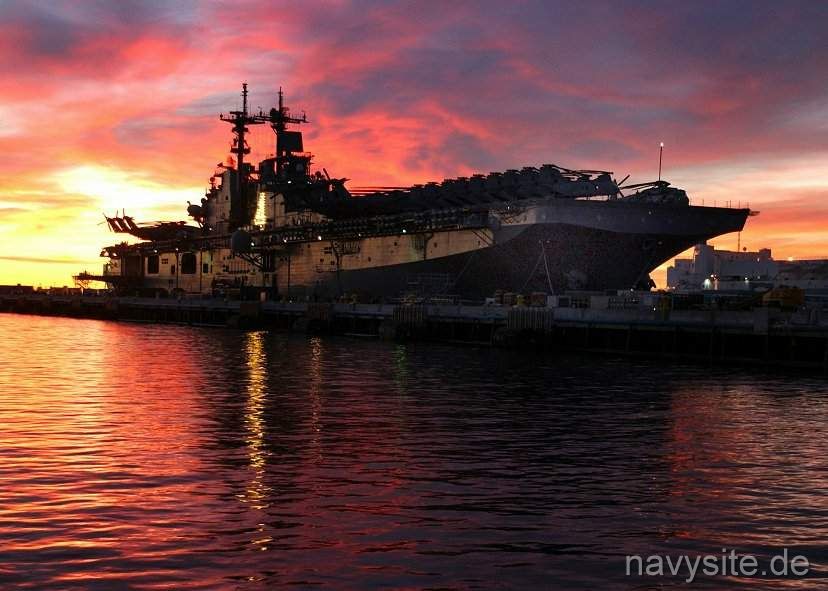
USS Boxer
by Michel Chossudovsky
"There is a massive concentration of US naval power in the Persian Gulf and the Arabian Sea. Three US naval strike groups off the Iranian coastline are deployed: USS Enterprise, USS Eisenhower and USS Iwo Jima Expeditionary Strike Group.
The naval strike groups have been assigned to fighting the "global war on terrorism."
Tehran considers the US war games to be conducted in the Persian Gulf, off the Iranian coastline as a provocation, which is intended to trigger a potential crisis and a situation of direct confrontation between US and Iranian naval forces in the Persian Gulf:
"Reports say the US-led naval exercises based near Bahrain will practise intercepting and searching ships carrying weapons of mass destruction and missiles.
Iran's official news agency IRNA quoted an unnamed foreign ministry official as describing the military manoeuvres as dangerous and suspicious.
Reports say the US-led naval exercises based near Bahrain will practise intercepting and searching ships carrying weapons of mass destruction and missiles.
The Iranian foreign ministry official said the US-led exercises were not in line with the security and stability of the region. Instead, they are aimed at fomenting crises, he said." (quoted in BBC, 23 October 2006)
Canada is formally participating in this military deployment under the disguise of the "war on terrorism". The Canadian Navy has dispatched Frigate HMCS Ottawa, which is now an integral part of ESG 5, under US Command. It is worth noting that particular emphasis has been given to medical evacuations and combat medical support suggesting that a combat scenario could be envisaged.
Dangerous Crossroads: Tonkin II?
"An incident" in the Persian Gulf could be used by the US as a pretext for war against Iran.
A war pretext incident, similar to "the Gulf of Tonkin Incident", which triggered the Vietnam war, could be used by US forces, with a view to justifying retaliatory military action against Iran. In August 1964, President Lyndon B. Johnson claimed that North Vietnamese forces had attacked US destroyers in the Gulf of Tonkin. The Tonkin incident, which had been manipulated, contributed to unleashing a full-fledged war against Vietnam:
"A phantom attack on two U.S. destroyers cruising the Gulf of Tonkin was staged by the Pentagon and the C.I.A. The bogus attack occurred early in August, 1964. That evening President Lyndon Johnson went on television giving the grim details of the non-attack. Later, however, it was revealed that navy commander James Stockdale flew cover over the Gulf of Tonkin that night. Stockdale disclosed that U.S. ships were firing at phantom targets—targets that didn’t exist. The Gulf of Tonkin Incident that drew the U.S. into the quagmire of Viet Nam simply didn’t happen. Johnson, as presidents so often do, lied to the American people. The result was the rapid passage of the Gulf of Tonkin Resolution, which was the sole legal basis for the Viet Nam War. As a result of Johnson’s lie, three million Vietnamese people and fifty eight thousand U.S. soldiers died." (Charles Sullivan, Global Research, January 2006)"

No comments:
Post a Comment